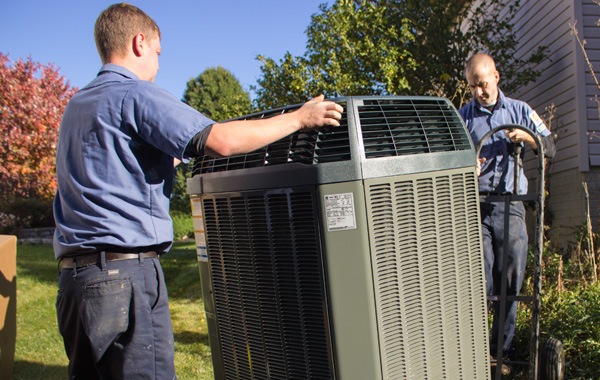
Efficient HVAC Installation for Home Comfort
When it comes to creating a comfortable living space, a well-installed HVAC (Heating, Ventilation, and Air Conditioning) system is paramount. Proper HVAC installation not only ensures optimal performance but also contributes to energy efficiency and long-term cost savings. Explore the key aspects of efficient HVAC installation for a home that remains comfortable year-round.
Professional Assessment and Sizing
The first step in efficient HVAC installation is a thorough assessment of your home’s heating and cooling needs. HVAC professionals conduct calculations to determine the right size of the system for your space. An accurately sized system ensures efficient operation, preventing issues like short cycling or inadequate heating and cooling.
Choosing the Right System and Components
There are various HVAC systems available, each with its own set of features and energy efficiency ratings. A professional installer can help you choose the right system based on your climate, home size, and specific requirements. Additionally, selecting high-efficiency components, such as energy-efficient furnaces and air conditioners, contributes to overall system efficiency.
Ductwork Design and Sealing
The efficiency of an HVAC system relies heavily on the design and condition of its ductwork. Properly designed and sealed ducts ensure that conditioned air reaches all areas of your home without leaks or energy loss. During installation, professionals assess the ductwork, making any necessary repairs or improvements to enhance efficiency.
Energy-Efficient Thermostats and Controls
Integrating energy-efficient thermostats and controls is a crucial aspect of modern HVAC installation. Smart thermostats allow for precise temperature control, scheduling, and remote monitoring. These features not only enhance comfort but also contribute to energy savings by optimizing the system’s performance based on your lifestyle.
Proper Refrigerant Charging
In air conditioning systems, proper refrigerant charging is vital for optimal performance. Incorrect refrigerant levels can lead to reduced efficiency and increased energy consumption. HVAC professionals carefully measure and charge the refrigerant to manufacturer specifications during installation, ensuring the system operates at peak efficiency.
Installation Compliance and Safety
Adherence to local building codes and safety standards is non-negotiable in HVAC installation. Professional installers are well-versed in these regulations, ensuring that the installation meets all requirements for safety and efficiency. Compliance not only ensures the well-being of occupants but also avoids potential legal issues.
Regular Maintenance Planning
Efficient HVAC installation is not a one-time event; it involves planning for regular maintenance. Setting up a maintenance schedule ensures that your system remains in peak condition. Regular inspections, filter changes, and tune-ups by professionals contribute to longevity and sustained efficiency.
Optimizing Ventilation for Air Quality
In addition to heating and cooling, ventilation is a critical component of HVAC installation. A well-designed ventilation system contributes to indoor air quality by exchanging stale indoor air with fresh outdoor air. This is crucial for a healthy living environment, reducing pollutants and preventing the buildup of allergens.
Post-Installation Testing and Optimization
After installation, thorough testing and optimization are conducted to ensure that the HVAC system operates according to design specifications. This includes checking airflow, temperature differentials, and system controls. Any adjustments needed for optimal performance are made during this phase.
Educating Homeowners on System Operation
Efficient HVAC installation extends beyond the technical aspects. Homeowners should be educated on proper system operation, including how to use thermostats, change filters, and recognize signs of potential issues. This knowledge empowers homeowners to actively participate in maintaining the system’s efficiency.
Investing in Comfort and Efficiency with HVAC Installation
Efficient HVAC installation is an investment in your home’s comfort, energy efficiency, and long-term savings. By prioritizing professional assessment, proper sizing, energy-efficient components, and ongoing maintenance, you create an environment where your HVAC system operates at its best. For more insights and guidance on HVAC installation, visit HVAC Installation for expert resources.
